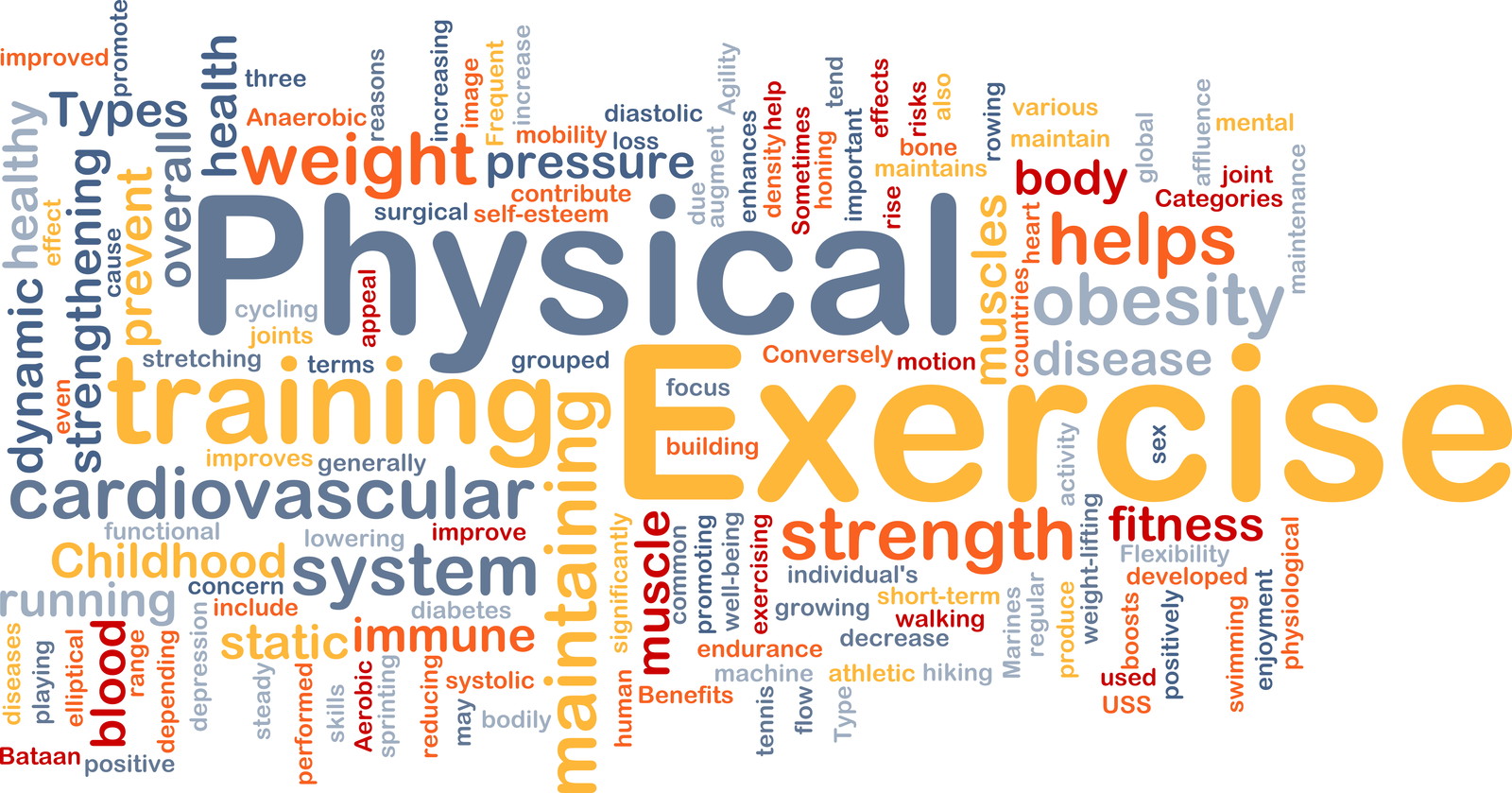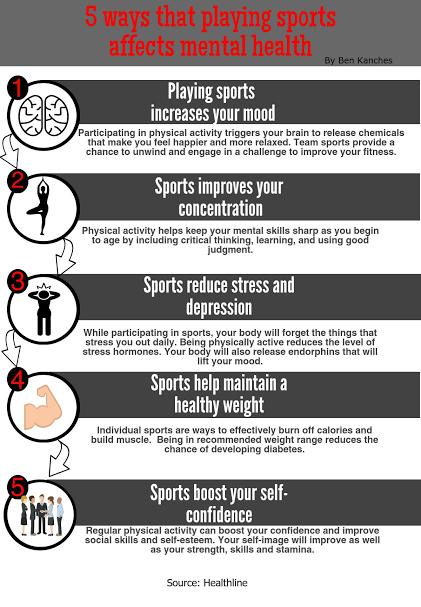Unveiling the Power of Sports
Sports have long been recognized for their ability to enhance physical fitness, but their impact on overall well-being extends far beyond the realm of the body. By engaging in sports, individuals can significantly improve their living, reaping a multitude of benefits that encompass mental health, social connections, and personal growth. This article delves into the transformative potential of sports participation, highlighting its capacity to elevate various aspects of daily life.

Physical Health: A Strong Foundation
Sports participation is a powerful catalyst for enhancing physical health, enabling individuals to lead more vibrant and fulfilling lives. By engaging in regular sports activities, one can significantly improve cardiovascular fitness, strengthen muscles and bones, and maintain better overall physical vitality. This section explores the multifaceted role of sports in promoting diverse health benefits, shedding light on how sports can improve our living.
Aerobic activities, such as running, swimming, and cycling, are instrumental in bolstering cardiovascular health. By engaging in these sports, individuals can effectively strengthen their hearts, reduce blood pressure, and improve circulation. Moreover, regular aerobic exercise has been shown to lower the risk of chronic conditions, including heart disease, diabetes, and stroke. Consequently, incorporating aerobic sports into one’s routine can significantly enhance overall well-being and contribute to a healthier, longer life.
Strength training, through sports like weightlifting, rock climbing, and gymnastics, is equally important for maintaining optimal physical health. By building lean muscle mass, individuals can increase their metabolism, improve bone density, and enhance functional strength. This, in turn, can lead to better balance, coordination, and overall physical resilience. Furthermore, strength training has been linked to reduced risk of injury, making it an essential component of any well-rounded sports regimen.
Beyond aerobic and strength training, sports can also contribute to improved flexibility, agility, and body awareness. Activities such as dance, yoga, and martial arts offer unique opportunities to develop these skills, which can translate to better posture, reduced risk of injury, and increased overall physical confidence. By engaging in a diverse range of sports, individuals can create a comprehensive fitness routine that addresses multiple aspects of physical health, ultimately leading to a higher quality of life.

Mental Well-being: A Balanced Mind
Sports participation is increasingly recognized for its profound impact on mental health and overall well-being. By engaging in regular physical activity, individuals can effectively reduce stress, bolster self-confidence, and enhance their mood. This section elucidates the role of sports in fostering mental wellness and highlights the underlying mechanisms that contribute to a more balanced mind.
Stress reduction is a key mental health benefit associated with sports participation. Engaging in regular physical activity has been shown to decrease the production of stress hormones, such as cortisol and adrenaline, while simultaneously stimulating the release of endorphins, the body’s natural mood elevators. Consequently, individuals who participate in sports often experience a sense of calm and relaxation, making it an effective strategy for managing daily stressors and promoting overall mental well-being.
Increased self-confidence is another significant mental health benefit derived from sports participation. By setting and achieving personal fitness goals, individuals can foster a sense of self-efficacy and self-worth. Moreover, sports participation often involves overcoming challenges and learning new skills, which can further enhance self-esteem and contribute to a more positive self-image. This increased confidence can positively impact various aspects of daily life, from personal relationships to professional endeavors.
Improved mood is an additional mental health advantage associated with sports engagement. Regular physical activity has been linked to reduced symptoms of depression and anxiety, as well as increased feelings of happiness and well-being. This mood-enhancing effect is attributed to the release of endorphins, which produce a sense of euphoria and pleasure, often referred to as the “runner’s high.” Furthermore, sports participation can provide individuals with a sense of accomplishment and pride, which can contribute to overall psychological well-being.
In conclusion, sports participation plays a crucial role in fostering mental well-being by reducing stress, enhancing self-confidence, and improving mood. By incorporating sports into daily routines, individuals can effectively cultivate a more balanced mind and optimize their overall quality of life. When considering how can sports improve our living, it is essential to recognize the profound impact of sports on mental health and well-being.

Social Connections: Building a Supportive Community
Beyond the immediate physical and mental health benefits, sports participation significantly impacts social connections and support networks. Engaging in sports, whether team-based or individual, fosters a sense of camaraderie, teamwork, and sportsmanship, all of which contribute to a more interconnected and fulfilling life. This section explores the role of sports in cultivating social bonds and highlights the importance of these connections in enhancing overall well-being.
Team sports, such as soccer, basketball, and volleyball, inherently emphasize collaboration, communication, and cooperation among participants. These activities require individuals to work together to achieve a common goal, often necessitating the development of trust and mutual respect. By engaging in team sports, participants not only improve their physical fitness but also expand their social circles and strengthen existing relationships. The shared experience of training, competing, and overcoming challenges creates a unique bond among teammates, providing a supportive community that extends beyond the sports arena.
Individual sports, such as running, swimming, or tennis, also contribute to social connections, albeit in a different manner. These activities often involve training with others, participating in group events, or competing against peers. By engaging in individual sports, participants can still reap the benefits of social interaction while maintaining a level of autonomy and self-reliance. Moreover, individual sports often attract like-minded individuals, allowing participants to connect with others who share similar interests and goals. This sense of belonging and shared purpose can significantly enhance one’s overall quality of life and contribute to a more robust support network.
Regardless of the sport or activity, sportsmanship is a fundamental aspect of sports participation that plays a crucial role in fostering social connections. By demonstrating respect for opponents, officials, and teammates, participants contribute to a positive and inclusive environment that encourages collaboration and mutual growth. Furthermore, sportsmanship promotes the development of essential life skills, such as empathy, patience, and resilience, which can positively impact various aspects of daily life, from personal relationships to professional endeavors.
In conclusion, sports participation significantly impacts social connections and support networks, fostering a sense of community, teamwork, and sportsmanship. By incorporating sports into daily routines, individuals can effectively cultivate meaningful relationships, expand their social circles, and contribute to a more interconnected and fulfilling life. When considering how can sports improve our living, it is essential to recognize the profound impact of sports on social connections and the essential role these relationships play in enhancing overall well-being.

Beyond Competition: Embracing Lifelong Fitness
Sports participation extends far beyond the realm of competition and athletic prowess. Engaging in sports, irrespective of age or ability, can significantly contribute to a person’s long-term health, well-being, and personal growth. This section emphasizes the value of sports participation as a lifelong pursuit and encourages readers to view sports as a means of maintaining long-term health and wellness.
As individuals age, maintaining physical fitness becomes increasingly important for overall health and longevity. Regular sports engagement can help older adults preserve muscle mass, improve cardiovascular fitness, and reduce the risk of chronic diseases, such as diabetes, heart disease, and obesity. Moreover, participating in sports can foster a sense of community and belonging, providing older adults with a valuable support network that contributes to mental well-being and overall quality of life.
For those with physical limitations or disabilities, adaptive sports offer a unique opportunity to experience the benefits of sports participation. Adaptive sports, such as wheelchair basketball, sitting volleyball, or blind soccer, cater to individuals with varying abilities, allowing them to engage in physical activity and reap the rewards of sports engagement. By embracing adaptive sports, individuals can overcome physical challenges, enhance self-confidence, and foster a sense of accomplishment, ultimately improving their overall well-being and living standards.
Moreover, sports participation can serve as a catalyst for personal growth and development, regardless of age or ability. Engaging in sports often requires individuals to set goals, practice self-discipline, and develop resilience in the face of adversity. These skills, which are transferable to various aspects of daily life, contribute to personal growth and self-improvement, further enhancing the overall quality of living.
In conclusion, sports participation offers numerous benefits that extend far beyond competition and athletic achievement. By embracing sports as a lifelong pursuit, individuals can significantly improve their long-term health, well-being, and personal growth. When considering how can sports improve our living, it is essential to recognize the profound impact of sports on overall quality of life, regardless of age or ability.

Selecting the Right Sport: A Personal Journey
Embarking on a sports journey is an exciting endeavor, yet it can be challenging to determine the most suitable sport for individual interests, abilities, and goals. This section provides guidance on selecting the ideal sport, emphasizing the importance of exploration and perseverance in overcoming initial challenges.
First, consider personal interests and passions when choosing a sport. Engaging in an activity that brings joy and excitement will increase motivation and commitment, making it more likely to maintain long-term participation. For instance, individuals who enjoy being in the water might consider swimming, water polo, or synchronized swimming, while those who enjoy team dynamics might thrive in sports like basketball, soccer, or volleyball.
Next, evaluate individual abilities and physical attributes. For example, individuals with strong upper bodies might excel in sports like tennis, swimming, or rock climbing, while those with exceptional agility and speed might find success in track and field events or soccer. However, it is essential to remember that abilities can be developed and improved over time, so do not be discouraged if initial skills are lacking. Embrace the opportunity to learn and grow, understanding that progress and improvement are integral components of sports participation.
Additionally, consider the unique benefits of various sports when making a decision. For instance, high-impact sports like running or basketball can improve cardiovascular health, while low-impact activities like swimming or cycling may be more suitable for individuals with joint issues or physical limitations. Furthermore, team sports can foster social connections and teamwork skills, while individual sports can enhance self-discipline and self-reliance. By understanding the distinct advantages of different sports, individuals can make informed decisions that align with their personal goals and aspirations.
Lastly, remember that perseverance is crucial when selecting the right sport. Initial challenges and setbacks are common, but with dedication and determination, individuals can overcome obstacles and develop a lifelong passion for their chosen activity. Embrace the opportunity to learn from failures and setbacks, understanding that these experiences contribute to personal growth and development, ultimately enhancing the overall quality of living.
In conclusion, choosing the most suitable sport for individual interests, abilities, and goals is a personal journey that requires careful consideration and exploration. By focusing on personal passions, evaluating individual abilities, understanding the unique benefits of various sports, and embracing perseverance, individuals can embark on a fulfilling sports journey that significantly improves their long-term health, well-being, and personal growth. When pondering how can sports improve our living, selecting the right sport is a crucial first step in unlocking the transformative potential of sports participation.
Integrating Sports into Daily Life: Strategies for Success
Integrating sports into daily life can significantly enhance overall well-being and contribute to improved physical health, mental wellness, and social connections. However, several barriers often hinder regular sports participation, such as time constraints, lack of motivation, and fear of injury. This section offers practical suggestions for overcoming these obstacles and successfully incorporating sports into daily routines.
Managing Time Constraints
Time management is crucial when integrating sports into daily life. Prioritize physical activity by scheduling it into your calendar, treating it as an essential appointment. Consider breaking down workout sessions into shorter intervals throughout the day, making it easier to fit exercise into a busy schedule. Additionally, explore time-efficient workout options, such as high-intensity interval training (HIIT) or bodyweight exercises, which can provide significant health benefits in minimal time.
Overcoming Lack of Motivation
Staying motivated can be challenging, but setting clear goals and tracking progress can help maintain enthusiasm. Create a list of specific, measurable, achievable, relevant, and time-bound (SMART) objectives to guide your sports journey. Regularly review your progress, celebrate milestones, and adjust goals as needed to ensure continued growth and development. Furthermore, seek support from friends, family, or sports organizations, as surrounding yourself with like-minded individuals can foster motivation and accountability.
Alleviating Fear of Injury
Fear of injury is a valid concern, but proper preparation and technique can significantly reduce the risk. Invest in high-quality equipment and clothing tailored to your chosen sport, ensuring safety and comfort. Seek guidance from certified coaches or trainers to learn proper techniques and exercises designed to prevent injuries. Gradually increase the intensity and duration of workouts, allowing your body to adapt to new challenges. Lastly, remember to warm up and cool down before and after physical activity, promoting flexibility and reducing the likelihood of injury.
Incorporating Sports into Daily Routines
To successfully integrate sports into daily life, consider the following strategies:
- Choose a sport or physical activity that aligns with your interests and goals.
- Create a consistent routine, ideally incorporating sports on multiple days of the week.
- Explore various workout formats, such as group classes, personal training sessions, or solo workouts, to find what best suits your preferences and schedule.
- Hold yourself accountable by sharing your sports goals with friends, family, or social networks.
- Reward yourself for achieving milestones and maintaining consistency in your sports participation.
In conclusion, integrating sports into daily life can significantly improve overall well-being and contribute to a more fulfilling, balanced lifestyle. By managing time constraints, overcoming lack of motivation, alleviating fear of injury, and employing effective strategies, individuals can successfully incorporate sports into their daily routines, ultimately enhancing how can sports improve our living.
Monitoring Progress: Celebrating Milestones
A crucial aspect of sports participation is monitoring progress and celebrating milestones. Tracking improvement not only provides valuable feedback on your development but also serves as motivation to continue pursuing your sports goals. This section discusses methods for monitoring progress and emphasizes the importance of acknowledging achievements in enhancing how can sports improve our living.
Keeping a Training Log
Maintaining a training log is an effective way to monitor progress in sports participation. Record the date, duration, and intensity of each workout, along with any personal bests or notable achievements. Over time, reviewing your training log can help identify patterns, track improvements, and highlight areas requiring additional focus. Furthermore, a training log can serve as a valuable resource for setting future goals and measuring progress towards them.
Setting Performance Goals
Establishing specific, measurable, achievable, relevant, and time-bound (SMART) performance goals is essential for tracking progress in sports. SMART goals provide clear objectives to strive for, enabling you to measure your development and adjust your training plan accordingly. Regularly review and update your performance goals to ensure they remain relevant and aligned with your long-term sports aspirations.
Seeking Feedback from Coaches or Peers
Constructive feedback from coaches or peers can offer valuable insights into your sports performance and identify areas for improvement. Regularly seek feedback from trusted sources, whether through informal conversations, formal evaluations, or video analysis. Be open to criticism and willing to learn from others, as their perspective can help accelerate your growth and development in sports.
Celebrating Milestones
Recognizing and celebrating milestones in sports participation is essential for maintaining motivation and reinforcing the value of regular physical activity. Acknowledge personal bests, completed workouts, or consecutive days of exercise by treating yourself to a reward or sharing your achievement with friends and family. Celebrating milestones not only provides a sense of accomplishment but also fosters a positive association with sports, encouraging long-term adherence and commitment to an active lifestyle.
In conclusion, monitoring progress and celebrating milestones are integral components of sports participation. By keeping a training log, setting performance goals, seeking feedback from coaches or peers, and acknowledging achievements, individuals can effectively track their development and maintain motivation in their sports journey. Embracing these practices can significantly contribute to how can sports improve our living, fostering long-term health, well-being, and personal growth.

